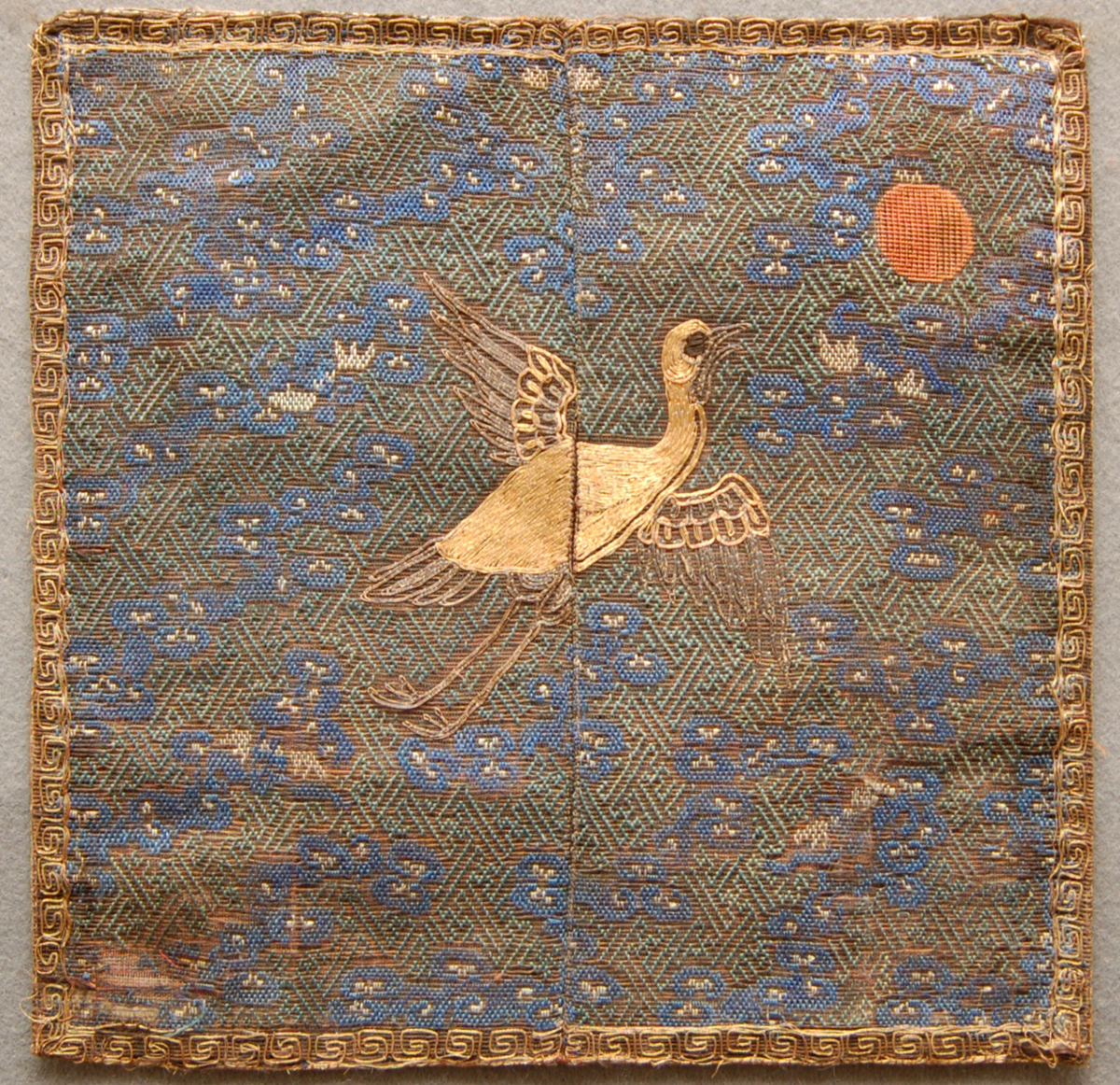
SOLD
Wife's Reform Period
1898
Wives insignia face the opposite direction to the men's. When worn the bird faces towards the left hand shoulder. A wife wore the badge of her husband or son. At official functions she would sit to the left of her husband or son, so as the bird is paying homage to the emperor (the sun) by facing him, the woman is also defering to her husband/son.
Cataloguing
insignia buzi for a 4th civil ranking official's wife, of a wild goose, the background embroidered in silks in counted stitch, the sun in orange silks, the bird couched in gold wrapped silk flying towards the sun, in a cloud filled and dragon meander sky, 10 1/2 in or 27 cm square.
Condition
There is some wear to the lower left hand corner. The weft threads have parted because some of the warps are missing. Not too noticeable. The silver thread is a little tarnished. At the corners the gold couching is a little worn or has come away. Overall this looks good.
Comments
Enlightened Qing Dynasty statesman tried to introduce Western technology and modernize China while keeping the Qing dynasty intact. Ignoring conservatives in his court, the 27-year-old Emperor Guangxu launched a reform movement called Hundred Day Reform in 1898 in which he set about abolishing institutions that had held back China's progress. As part of his modernization campaign he hoped to establish railways and ports, improve factories, translate Western books, educate the masses and get rid of bigoted conservatism and impractical customs. At the end of the 19th century, most of the railways, mines and transport in China had been built for foreigners for their own use. The reforms failed when the Empress Dowager Cixi staged a palace coup and Emperor Guangxu was imprisoned in the Hall of Impregnating Vitality on an artificial island in the Forbidden City, where he studied English and international affairs but never again wielded any power. The coup took place on September 21, 1898 and was carried out by Manchu generals and members of the Manchurian elite. Once installed as the leader of China, the Empress Dowager cancelled all the reforms except those involving the military.
